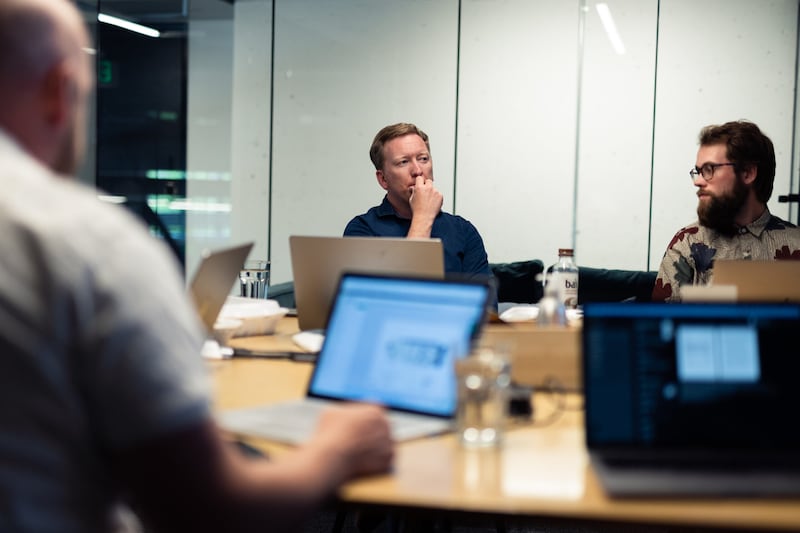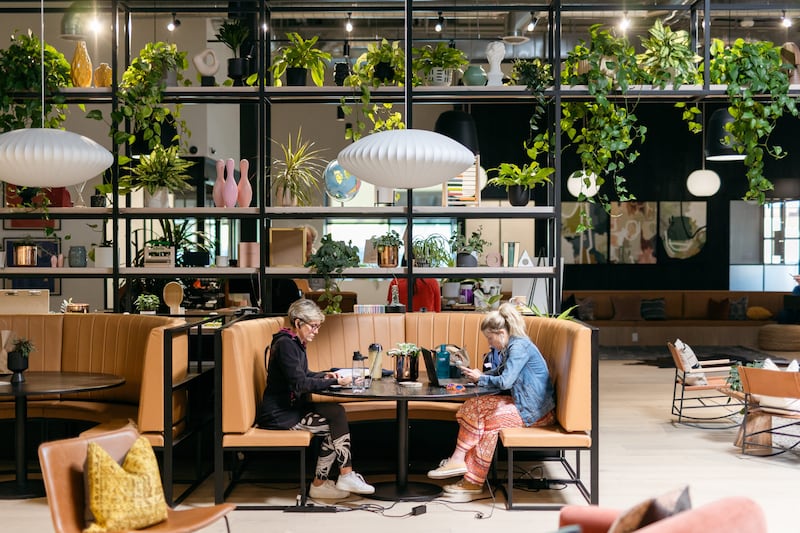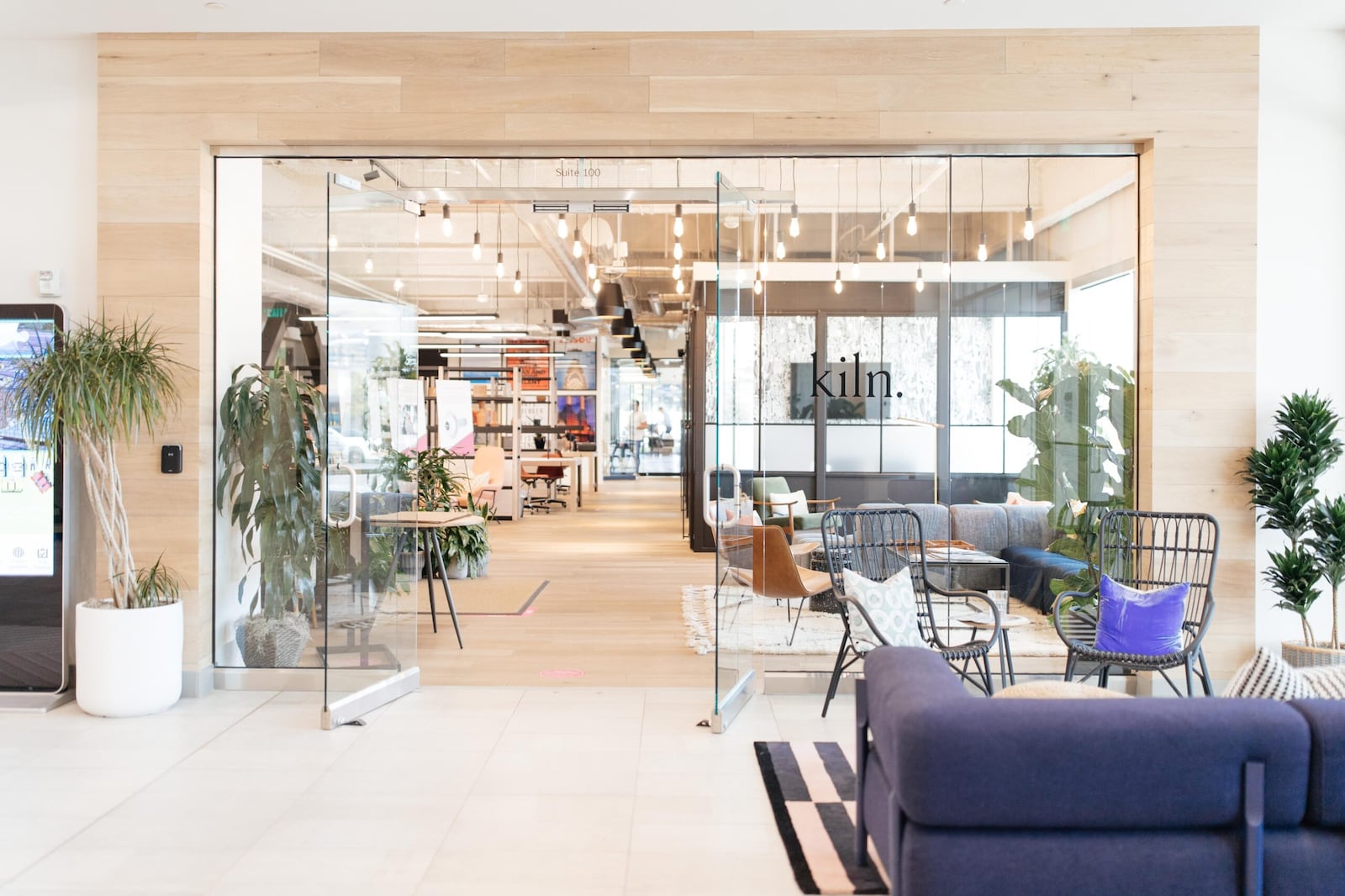I believe that much about who we are can be understood through our childhoods. In my case, both the adversity and opportunities of my childhood are an important part of my story.
I grew up in Provo, Utah. My parents were children of the 1960s. My mother was from Menlo Park, California. My father grew up around the world, as his father was in the Air Force. My parents met in college and fell in love doing survival trips—they were creative and handy. They took an old 1890s manor home on Center Street and remodeled it. Our home had gobs of character with a plant-filled atrium, tall-beamed ceilings and lots of windows. We lived there for most of my childhood. When I was six years old, my parents separated.
Following the divorce, my mother became an entrepreneur. She had always been creative and industrious, and she applied those traits to building a business to support our little family. I learned so much as I watched her build her business. Resources were limited and margins were thin. To build and retain her team, which had many low-paying and high-demand roles, she focused on culture.
She built a culture that was caring, inclusive and fostered belonging. This was natural for my mom, who was always curious and eager to learn about and help others. It was not uncommon for strangers, friends or family to eat or stay at our home—she was quick to welcome those who may be considered on the fringe.
My mother believed in a “free-range approach” to parenting. By age 11, I was going camping and backpacking on my own. At 12, I traveled solo to stay with friends in Canada, and at age 14, I spent a summer in Madrid. In my early teens, we moved up near the mountainside in Provo. I started my first business, Lewis & Clark Snow Removal, with my best friend at the time, Ryan Clark. Also, around this same time, Ryan and I decided to convert my family garage into a spaceship simulator.
After a year of hard work, we launched our first successful space missions. We eventually got paying customers who wanted to experience it. That was fun until the home insurance inspector wouldn’t renew our policy because the simulator was a no-joke fire hazard.
During high school, I was involved in student government, theater, choir and skiing. After high school, I went to college. When I was 19 years old, I took a break to serve a church service mission in Puerto Rico. This experience opened my mind and heart. I gained empathy for people living in challenging circumstances and saw how individual efforts can have a meaningful impact on others. I’ve learned that many successful entrepreneurs often have a unique ability to feel and express empathy.
After two years in Puerto Rico, I returned to Brigham Young University (BYU). Near the time of graduating, I met Jill. Jill was raised in a small ranching town, and her grit and sincerity were attractive to me. She had supported herself through college by working several jobs while pursuing a pre-med degree. I didn’t realize it then, but my choice to build a lifelong partnership with Jill has driven, lifted and supported me in ways I now see as crucial to my story as a founder.
We married and moved to Las Vegas and I went to work for a real estate company called Pulte. I sold homes in “active adult communities” of 5,000-7,000 homes called Sun City. I loved the communal aspect of what we built and the quality of life it could provide for people. At Sun City, our customers would buy a community and get a house with it.

Starting a new life in England
After eight years with Pulte, I decided to press the reset button and pursue an MBA. We moved our three little kids and my wife with six suitcases to Oxford, England. We lived in an 800-square-foot flat with no car. I worked hard on my studies and spent extra time learning about innovation and strategy—this included learning from Clayton Christensen, who spent a summer in Oxford on a fellowship.
I also studied coworking as a part of a paid research project sponsored by CBRE. We presented the findings in a report called “The Workshop,” which argued that tech workers would take over retail shops as their offices and create communities for startups in the future.
Coworking seemed to have a lot of parallels with the Sun City communities I had sold back in Nevada—it was about connectivity and building community rather than just having an office. While at Oxford, I joined a group of classmates in starting a company called Tekcapital. Tekcapital would bundle together IP from universities and sell it to mid-cap public companies. Twelve months later, we took Tekcapital public on the LSE:AIM.
Around this time, I attended a breakfast discussion with Principal Will Hutton at my college, Hertford College. The topic of the discussion was “open innovation.” In attendance were the COO and the chief design and digital officer, Derek White, for Barclays PLC. This chance meeting eventually led to a job at Barclays. I was hired by Derek, who has since become a close friend. Derek is now the CEO of Galileo, a fintech company in Utah.
My mandate was to develop a strategy and program to enable Barclays to build new products and key banking relationships with entrepreneurs and startups. One of the central questions was “how” to get bankers and internal technology teams to engage with founders and early-stage startups. I saw an obvious opportunity to create a coworking space for fintech startups and top-tier founders.
Coworking and Barclays: An unlikely but happy pair
Securing the initial budget for the project from Barclays was not easy, but we managed to secure $850,000. We formed a partnership with a leading coworking brand called Central Working. Together with the founder, James Layfield, we found an old department store in East London that had been abandoned for 20 years. There were mattresses in the corner, needles and broken windows. We loved the space, and over the course of six months, we turned it into a beautiful coworking location called the The Escalator. Little did I know at the time that the designer we hired, Leigh Radford, would eventually become my co-founder at Kiln.
The project was an immediate success. We welcomed over 50 startups within the first few months. We also launched The Barclays Accelerator with Techstars, which has now served over 100 fintech startups. We started “Crypto Mondays” and hosted the first public meetups for Ethereum. About six months into the venture, a new group COO was hired by Barclays. While in our theater at The Escalator during his first visit, he said to his entire leadership team, “This is brilliant—we are going to do this all over the world!”
That kicked off a new strategy to expand globally and create a new brand called “Rise.” We laid out a plan to begin establishing Rise locations in startup ecosystems and cities around the world. This ultimately led to a multi-year journey building sites and programs in London, New York, Tel Aviv, Cape Town, Mumbai, Manchester and Vilnius (Lithuania).
The result was a robust innovation engine of over 400 fintech companies creating the future of financial services. Additionally, we signed over 50 partnerships per year to build new products and services with Barclays across the globe.
In India, we worked with many first-time founders who were capitalizing on the millions of new entrants into the digital economy, many of whom were gaining first-time access to banking through their phones. In Lithuania, we worked directly with the president of the country to create a new legal infrastructure for fintech and crypto companies. In Cape Town, we saw some of Africa’s smartest founders who were addressing large gaps in the financial system.
We also worked with women from townships to create apps for their villages. In New York, we sat at the center of the world of finance and had regular interactions with some of the biggest names in the industry. Finally, we built the undisputed home for fintech in London, which to this day is known as the primary point where fintech companies are formed and grown.
After many air miles and a lot of learning, it became increasingly clear that while people, cultures and circumstances may differ, the elements that enabled success were often consistent. Successful founders are highly resilient. The best companies are founded by individuals with a high propensity for empathy. Founders need feedback, and they benefit tremendously from mentors and others who can help them solve problems quickly. Founding a company can be lonely. It takes a maverick, and the right community can make all the difference.

Time to start from scratch
After four and a half years and many nights away from my family, I began to consider what the next steps in my career should be. At this point, our family had moved from London to Connecticut, where I would commute to Manhattan or JFK Airport for flights to our international locations. During these years, my kids had grown and changed. We welcomed our fourth child, a daughter, who was born in London.
From the start of my time at Barclays, I had an inkling that my time there would lead me to start my own company. It became clear through the process of building Rise that I was genuinely passionate about coworking and working with startups. I was thriving and had a knack for the detail of building physical environments and creating communities. I also had a good grasp of the financial model behind coworking and learned how to identify and launch locations.
With the encouragement of some close friends and family and wholehearted support from Jill, I decided to leave Barclays and start Kiln. I structured a six-month hand-off plan, and we moved from Connecticut to Utah as a family.
I selected two locations in Utah, and with the help of a trusted mentor and family member, I raised a seed round to launch the company with two locations in Salt Lake and Lehi. It was a classmate from Oxford who led the initial investment. As soon as the capital was raised, I called Leigh.
Leigh had been designing coworking locations for the better part of a decade, and we had worked closely together to develop Rise. I bribed him with skiing and adventures in the mountains and was thrilled when he agreed to lead our design efforts. We are two very different people, but we share a passion for coworking and a mutual appreciation of one another’s strengths and differences.
Our first project was designing a kit of parts and a paneling system to enable the setup of a prototype location, which was originally 20,000 square feet filled in just under three months. We began to build a team, and our world started to grow.
Simultaneously, we worked on converting an old arcade and sports bar in Salt Lake (30,000 square feet) and a new office building in Lehi, Utah (48,000 square feet). By the end of 2019, we had two locations, a team of 12 and over 1,000 members in Utah. Our sites were full, and the network and brand were coming to life.
When the pandemic hit in early 2020, we were full in Lehi and Salt Lake City. We had more sites under development, including Park City, Utah and Boulder, Colorado—we were in the middle of building Boulder when the pandemic hit. For a time, things came to a grinding halt.
We immediately saw revenues drop, and it was clear that the pandemic was going to challenge the survival of our business. We were determined to do whatever we could to stay open and not lay off any of our team. In the U.S., over 800 coworking spaces went out of business, but we managed to keep the doors open.
One of our values as a team is to “be scrappy and ingenious,” and we really leaned into that during the pandemic. We cut our own salaries and cut back spending, but we never missed a committed payment, nor did we lay off any of our team. It was challenging and stressful, but we got through it and learned important lessons.
The adage “what doesn’t kill you makes you stronger” was true about the pandemic. Its impact on the future of work has been dramatic, and demand has shifted to favor flex offices. Over the last year and a half, we’ve launched locations in Meridian, Idaho, and a large expansion in Salt Lake City. Our Boulder, Colorado location has done very well, and we have waiting lists in several locations.
In the fall of 2022, we acquired a coworking brand out of California called BLOC, bringing our brand to the beach with locations in Leucadia, Carlsbad and Encinitas. We also have locations under development in St. George, Provo, Portland, Arizona and more.
A critical point of progress over the past 18 months has been the new talent and leadership which has joined our company. We now have strength at every level of the company, and the culture and momentum have only improved.
The story of Kiln is now about passionate and talented individuals who are “collectively capable of things we cannot imagine.” Together, we have what it takes and are powered by a shared vision for elevating the quality of life while at work.
I care deeply about our team and how we are creating an environment where everyone can belong. Leigh continues to push forward our design and carefully curate each element of the environment. Our entire team is committed to raising the standard of what we deliver.
Kiln is admired for our level of care and creativity. Every day, we are seeing progress across a number of fronts. Our members recognize the value we are building for them and share our passion for community and progress. In so many ways, things have turned out better than I had ever imagined, and in other ways, I see how far we have yet to go. Overall, I feel a tremendous sense of gratitude and a steady enthusiasm for the path ahead.

